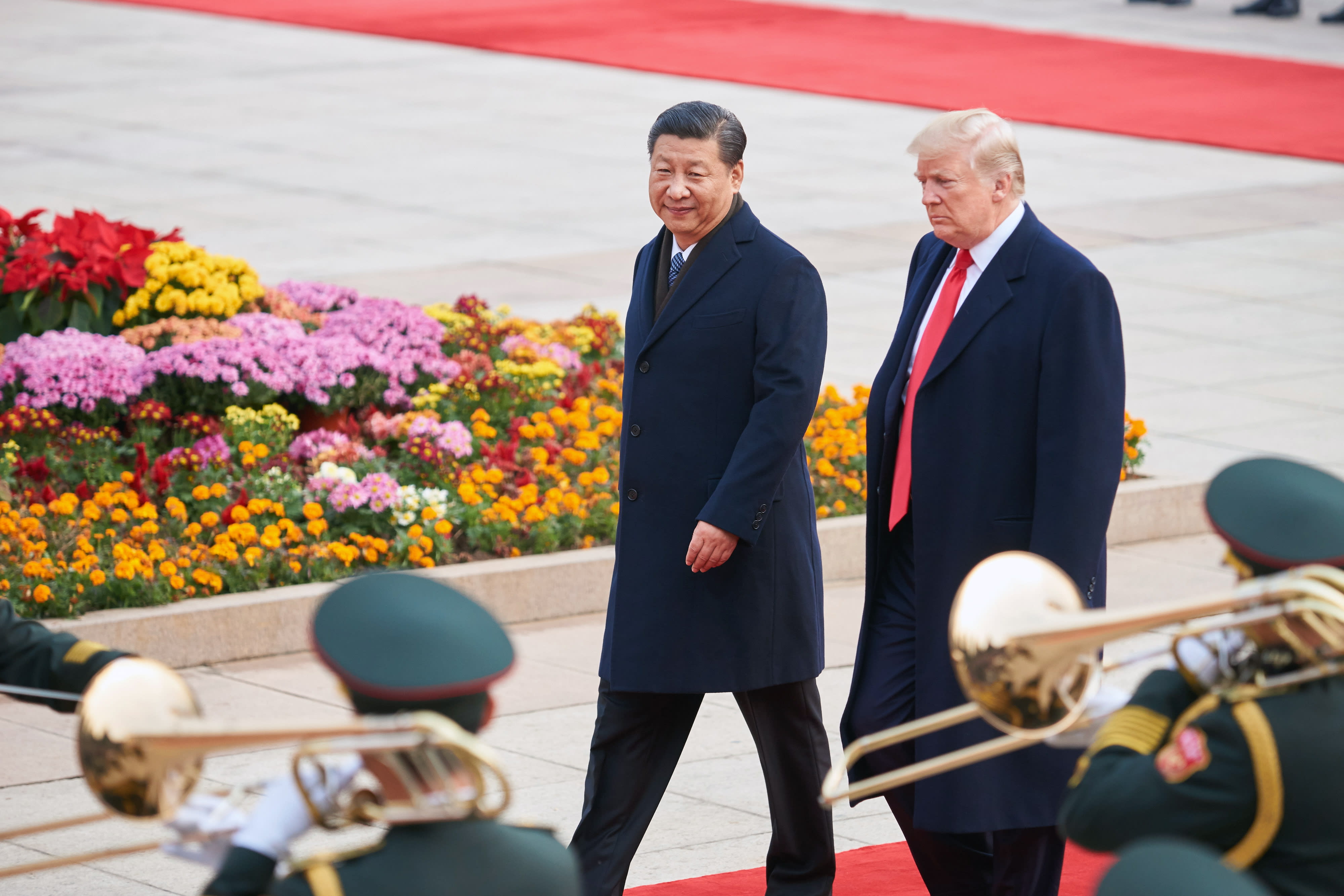
China’s President Xi Jinping and US President Donald Trump during a meeting outside the Great Hall of the People in Beijing.
Artyom Ivanov | TASS | Getty Images
CNBC’s Jim Cramer said Friday the U.S. should not take on China as the world faces unprecedented economic calamity from the coronavirus pandemic.
“What are we crazy?” Cramer asked, saying “this is not time” to inflame trade tensions between Washington in Beijing. “We’re not strong,” he added, pointing to the record 16.4% plunge in U.S. retail sales in April.
The “Mad Money” host’s comments come after the Trump administration’s move to block semiconductor shipments to China-based Huawei put heavy pressure on U.S. stock futures, which gave way to a lower open Friday on Wall Street.
Huawei, a maker of smartphones and mobile networking equipment, has been at the center of a long-running technological trade dispute between the world’s two largest economies. The U.S. has been trying to convince its allies around the world to exclude Huawei gear from next generation 5G networks on grounds that it could be used by China for spying. Huawei has repeatedly denied that accusation.
Cramer, who has been a hardliner on China, said the prospect of retaliation from China is “terrible.”
Hu Xijin, editor-in-chief of Chinese state-run publication Global Times, said in a tweet Friday that if the U.S. takes further action to block supply to Huawei, China will activate the “unreliable entity list,” “restrict or investigate” U.S. companies including Qualcomm, Cisco Systems and Apple, and suspend the purchase of Boeing airplanes. Those stocks were lower in early trading.
Hu’s Twitter account has been closely followed by many Wall Street traders for insight on the trade war. His commentary appeared to have inside knowledge about U.S.-China relations.
“Why don’t we take them on six months from now? Why right now? We need to sell things,” Cramer said. President Donald Trump needs to be “a little more good cop,” even if it makes the U.S. look like “we’re nice to the Chinese,” he added.
— CNBC’s Yun Li and Reuters contributed to this report.

